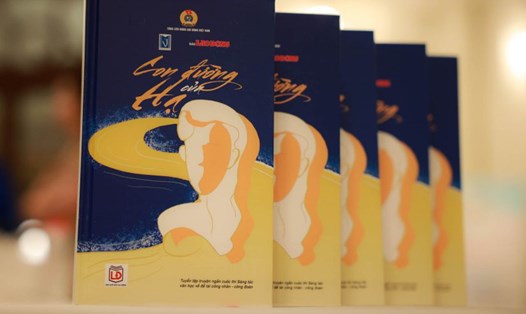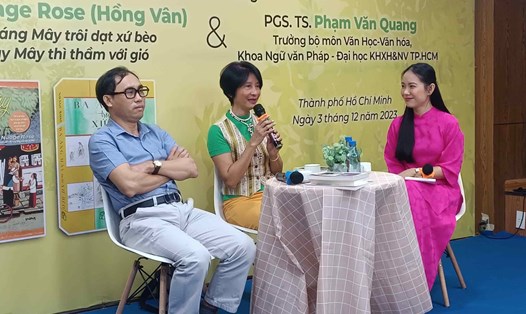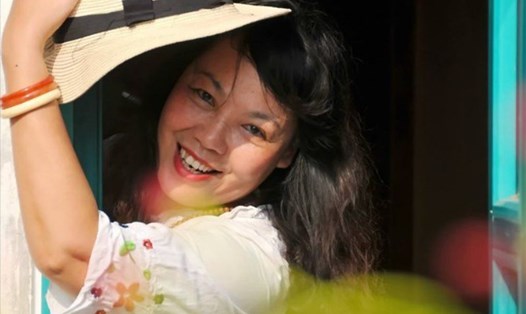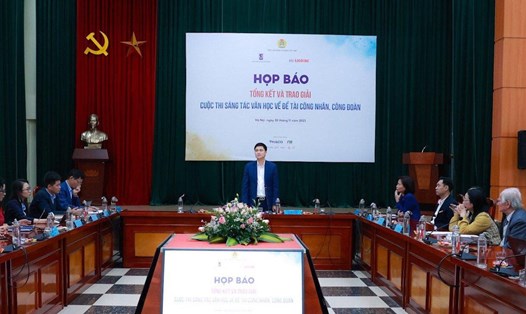The long journey of literary film adaptations
Throughout the development journey of Vietnamese cinema, audiences have enjoyed many outstanding films inspired by famous literary works. These include “Chi Dau” (adapted from the novel “Tat den” by Ngo Tat To), “Vo chong A Phu” (based on the work of the same name by To Hoai), “Mother away from home” (adapted from the work of the same name by Nguyen Thi), “Lang Vu Dai ngay ay” (adapted from a number of short stories by Nam Cao)...
From the 2000s to the present, literary works are still attractive material for Vietnamese filmmakers. Most recently, the film “Ngay Xua Co Mot Tinh” (Once Upon a Time) adapted from the literary work of writer Nguyen Nhat Anh is being released in theaters, but has not yet had the expected attraction. Literature has always been considered a “fertile land” for ideas for film scripts, but for a film to have attraction, to create an impression, to make both the literary work and the film “stormy” is not a simple problem.
A series of literary works have been recreated in cinematic language such as “Thien Menh Anh Hung” (adapted from the work “Buc Huyet Thu” by Bui Anh Tan), “Chuyen Cua Pao” (adapted from the work “Tieng hanh sau bo huong da” by Do Bich Thuy), “Canh Dong Bat Tan” (adapted from the work of the same name by Nguyen Ngoc Tu), “Toi thay hoa vang tren co xanh”, “Mat biec” (adapted from the novel of the same name by Nguyen Nhat Anh), “Tro tan ruc hong” (adapted based on 2 short stories by Nguyen Ngoc Tu, “Tro tan ruc hong” and “Cui rot tro ve”)… bringing different versions of stories that are familiar to the audience.
However, literary adaptations still receive mixed reviews, and the line between creating or losing the essence of the original is very fragile.
At the workshop “Developing the production of films exploiting historical themes and adapted from literary works” within the framework of the Hanoi International Film Festival, poet Nguyen Quang Thieu - Chairman of the Vietnam Writers Association - said that sometimes our filmmakers are still bound by the content of the original or historical works, afraid of the reaction of public opinion or the author. This hinders creativity.
“To have a good work, the filmmaker must be creative, create a life for the character, on the basis of respecting historical truth and not going against the original, and at the same time believe in his creative path,” said poet Nguyen Quang Thieu. Because the challenge for literary adaptations comes from the literary work itself, from the audience, from the filmmaker and the manager.
Many difficulties to overcome
Director Vo Thanh Hoa, who is currently working on the film project “Kaleidoscope”, also affirmed that to make a good literary adaptation, there must be preferential tax policies, preferential loans for filmmaking, and conditions to establish film studios and warehouses of historical props for filmmakers to exploit and utilize.
Because it is very difficult to find real locations for stories set in the countryside in the 1990s, not to mention other stages such as costumes, cultural reenactment, customs... Without innovations and the breath of the times, the film will lack persuasion and appeal to the audience.
Most recently, the film “Once Upon a Time There Was a Love Story” adapted from a novel by writer Nguyen Nhat Anh also received mixed reviews when it was released. If the story had not been ripped out, the character would have been criticized for not being a faithful recreation of the original. But if there was a character “exactly” identical to the original, the audience would have lost their curiosity about the film version.
Associate Professor, Dr. Bui Hoai Son - Standing Member of the National Assembly's Committee on Culture and Education also said that exempting and reducing VAT for cultural products and services is also something that should be done to make it easier for people to access cultural products, encourage artistic creation and preserve traditional values.











